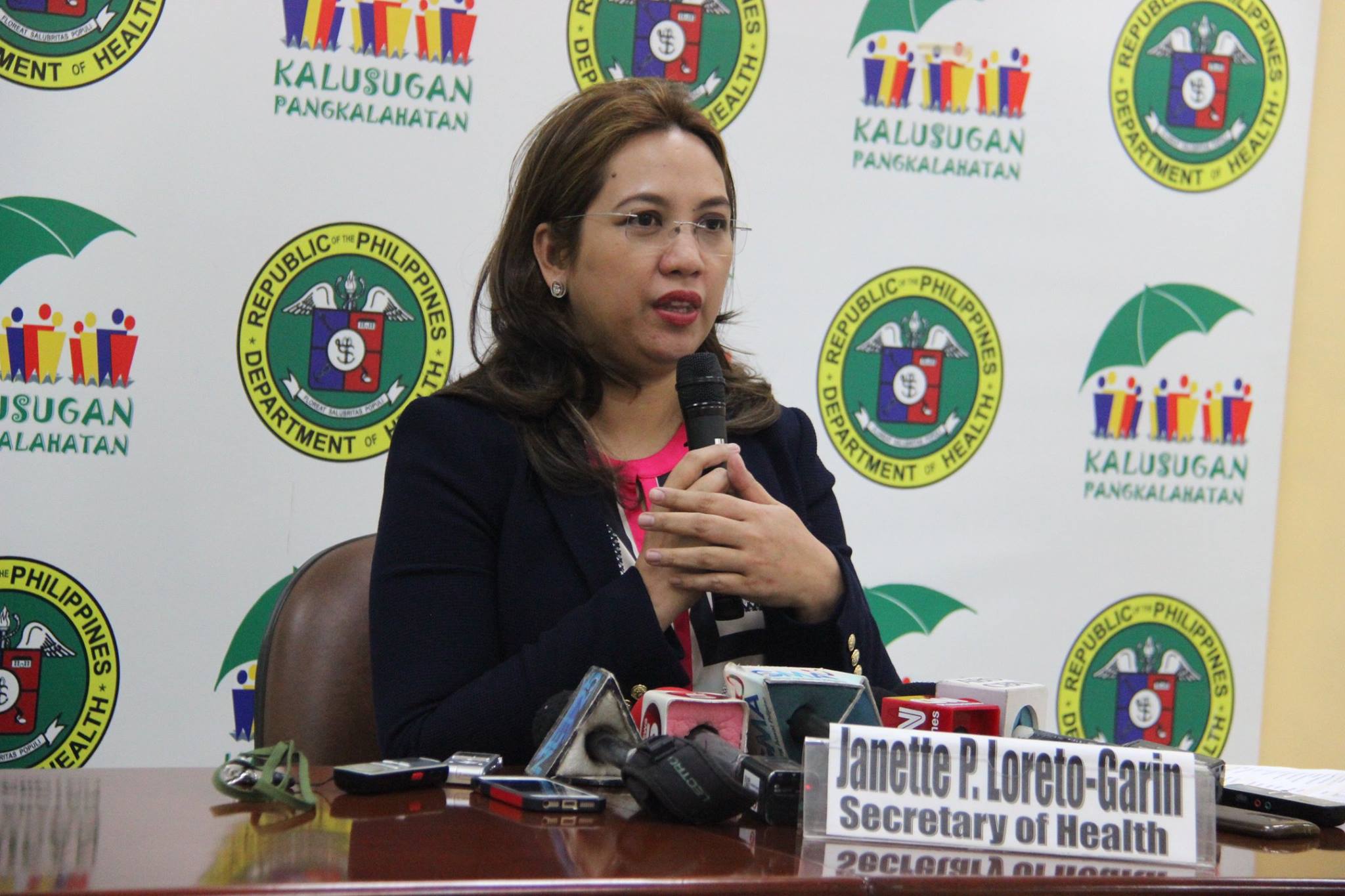
MANILA – The Department of Health (DOH), together with the Department of Education (DepEd), the Department of the Interior and Local Government (DILG) and the Local Government of Pasig, on Monday strongly reminded partner agencies, schools, universities, colleges, and parents to religiously enforce a 100 percent smoke-free school facilities in observance of June as “No Smoking Month.”
In a program held at Rizal High School in Pasig, the DOH led the call among students and parents to emphasize that smoking is harmful to the health and youth should never attempt to try out smoking.
“Studies have shown that most young people who smoke regularly continue to smoke throughout adulthood and fall prey to being ‘replacement smokers’ of the tobacco industry. Hence, we call on students, as well as the rest of our young population, to never start smoking,” said DOH Secretary Janette L. Garin.
Garin appealed also to the young students who unfortunately started to quit immediately.
“Professional help is available for those who want to quit. Not smoking, or quitting smoking, greatly reduces your risk for disease and early death. You also protect the health of others by preventing exposure to secondhand smoke.” Garin said.
The Health Chief said that since the implementation of the Sin Tax Reform of 2012, a dramatic decrease in smoking prevalence among the poor and the young was reported.
In the Social Weather Stations first quarter 2014 Survey revealed that the percentage of those currently smoking in Class E decreased from 38 percent in 2012 to 25 percent in 2014.
For the 18-24 years old age group, the percentage of those currently smoking also fell from 35 percent in 2012 to 18 percent in 2014.
She added that exposure of people inhaling second-hand smoke was more dangerous than those who smoke.
“Second-hand smoking increases non-smokers’ risk of developing heart disease, lung cancer, and other cancers (nasal sinus cavity cancer, breast cancer, cervical cancer, and bladder cancer, among others) and lung diseases (such as tuberculosis and pneumonia),” she added
She reminded also about the existing law, Republic Act 9211 or the Tobacco Regulation Act of 2003, which provides that tobacco products could not be sold or distributed within 100 meters from the school perimeter, as well as near public playgrounds or any other facility that minors frequently go to.
The penalties for violation on all restrictions range from a fine of not less than Php 500 to not more than Php 400,000 and imprisonment ranging from 30 days to three years depending on the seriousness of the violation.
Moreover, business permits and licenses may also be revoked or cancelled.
She further reminded about the full implementation of Graphic Health Warning Law on November of this year.
This year’s theme, “Graphic Health Warnings: Full Blast na sa November! Alamin. Unawain. Bantayan natin,” raises awareness on the full implementation of the GHW law which requires all tobacco products to carry pictorial warnings that show the ill effects of smoking.
Since March this year, all tobacco products manufactured or imported for sale in the Philippines are required to carry graphic health warnings on the lower portion of a cigarette pack, in at least 50 percent of both sides of the pack.
Because of these the manufacturers and suppliers of the cigarettes are not allowed to release cigarette packs without GHWs.
Old stocks already in the market and delivered prior to GHW implementing rules and regulations (IRR) are still allowed to circulate but all of this will all be pulled out once the full implementation begins.
“We enjoin you to know (alamin) what GHWs are; understand (unawain) its effect and importance as a tobacco-control measure; and make sure (bantayan natin) that all tobacco products carry these pictorial warnings to inform the public of the ill effects of smoking.” Garin ended up.